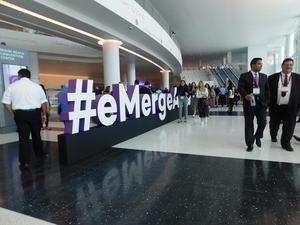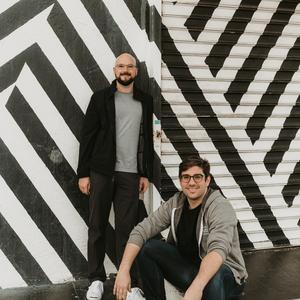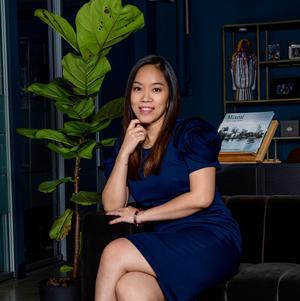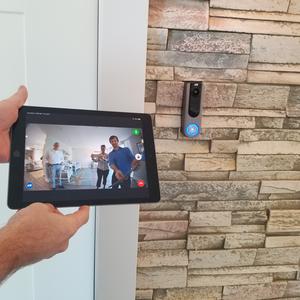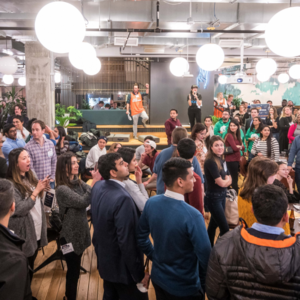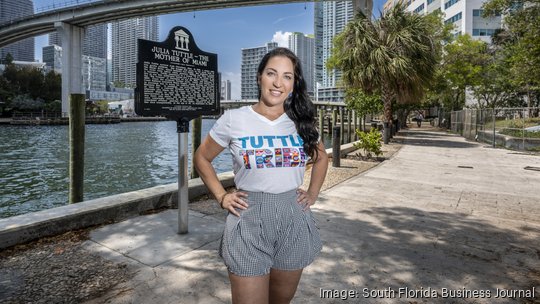
Michelle Abbs is building an inclusive culture in Web 3.0, one meetup at a time.
As the founder and CEO of Web3 Equity, Abbs is on a mission to bring more women into Web 3.0, a term used to describe a future version of the internet. In addition to blockchain and cryptocurrency, Web 3.0 will be powered by technology such as artificial intelligence and immersive metaverse platforms.
Abbs launched Web3 Equity last March with the minting of The Tuttle Tribe, a collection of 3,050 NFTs with digital art that represent themes such as Miami, women and digital wealth. Named after the city of Miami founder Julia Tuttle, a Tuttle Tribe NFT serves as a membership pass to the organization's roster of in-person meetups and educational events.
Women are largely underrepresented in tech, with less than 3% of all venture capital going to women-led ventures. But the Web 3.0 community, while growing, is still largely nascent. That provides women the chance to join the field from the ground floor and build a more equitable and inclusive community, Abbs said.
On March 30, Web3Equity is marking its first anniversary at The Hangar at Regatta Harbour in Miami's Coconut Grove. Built in 1918 as the first continental naval air station in the U.S., the location later served as a base for Pan American World Airway's seaplane base. Inspired by the space, the anniversary event will be designed as a Web 3.0 airport where participants can visit different "gates" to learn about various topics tied to the sector.
"Our collection has always included a nod to the past while looking forward to the future, so I thought the Hangar was the perfect location," Abbs said. "It represents our flight and journey into the future."
Abbs reflected on the first year of Web3 equity — and what lies ahead — in an interview with Miami Inno. The following has been condensed for clarity and length.
One year later, how are you feeling about inclusion in the Web 3.0 community?
I feel really proud of the community's hunger for information. When I started Web3Equity, I thought we'd mostly focus on helping people set up digital wallets and show them how to buy an NFT. But then we saw the community really wanted to dig in and learn. Now, we're a group of hundreds, some of who have taken leaps and bounds in the industry. We have members going out and getting jobs in Web 3.0.
But to be honest, I also feel frustrated on some days. For example, on International Women’s Day, I saw a huge thought leader in the crypto industry tweet a photo of industry leaders and it was nine white men. That was it. I had a moment that day when I thought, are we really making a difference? We are up against some really structured institutional archetypes and biases that need to be overcome.
What can be done to overcome those biases?
We have to have a tightened focus on male allyship. There are a lot of well-intentioned men who want to engage and support women in this field. But a recent Harvard Business Review study found that men often think they are allies, but women have a different perception. There's a huge schism there. We need men to be our allies, and we need them to understand what [women] need from allies, to make sure we'll build a gender equitable Web 3.0 sector. We all have to be involved in this.
How have perceptions of Web 3.0 changed over the past year?
We've been in a strange rollercoaster of a market over the past 12 months. There was a lot of hype and interest and energy behind us when we started, but a lot of people were initially interested in investment opportunities. They were seeing people make profits from flipping digital assets like NFTs, so that was a big draw. That's still a thread, but now we see more people who come to our events because they want to understand how Web 3.0 is going to apply to their professions. That includes lawyers, accountants, teachers. They want to know how to get involved, what tools and programs are best and more and get perspective on how this applies to them.
What kind of businesses are successfully using this technology?
The companies that have figured out a way to use blockchain technology to solve a real problem do well. Fashion is an example. The blockchain allows for transparent and trackable transactions. If you buy an item, you can use blockchain to track its history and ensure its authentic. If you think about the huge problem with counterfeit fashion, you can see that solves a problem.
Do you meet a lot of Web 3.0 skeptics?
I definitely meet people who have questions about the future of this. I think that comes from skepticism of cryptocurrency and the hype cycle and crash we've seen. 2021-2022 was about trading assets and getting a quick return. That turns a lot of people off. But that isn't the part that excites me about Web 3.0. So I actually welcome conversations with skeptics, because it gives me a chance to articulate what actually excites me about this technology.
What are your priorities for Web3 Equity's second year?
First, leaning into education. We're enhancing our course format to create cohort groups of 15 to 25 people. The cohorts will take a weekly course to dive into a certain topic, like blockchain tech for example. We'll talk about how the tech lends itself to the participants and how it could apply to their sector. For example, if I'm the CMO of a food company, how do I bring [Web 3.0] in? The second thing we're focusing on is job creation. We're starting a staffing and recruiting arm to find local talent and connect them with companies in South Florida. The Web 3.0 arm includes areas like the metaverse and artificial intelligence, and those are markets that will grow a lot in the coming years.
For more stories like this one, sign up for Miami Inno newsletters from the South Florida Business Journal and the American Inno network.




